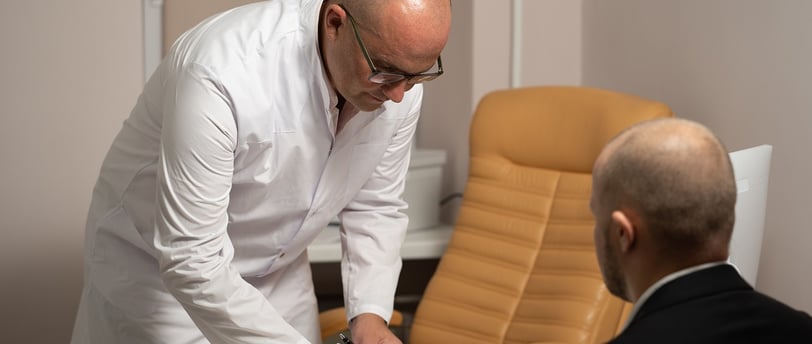IMSS calls on people to visit the Family Medicine Unit if they present symptoms of pneumonia and not to self-medicate
To prevent this disease, Social Security promotes vaccination against seasonal influenza and pneumococcus, especially in the vulnerable population, which reduces the risk of acquiring infections caused by different virus and bacteria strains.
SALUD
Jose Estrada
11/15/20242 min read


• If a person has chest pain, fever, chills, acute cough, or difficulty breathing, they should see a specialist in Pneumology or Internal Medicine to undergo laboratory tests, chest X-ray, and physical examination.
• On this World Pneumonia Day, Social Security invites the population to get vaccinated against Seasonal Influenza and Pneumococcus, which reduces the risk of infections caused by different virus and bacteria strains.
• From January to August of this year, the Institute has recorded 26,675 hospital discharges for Pneumonia in the Second Level of care and 1,063 in the Third Level.
The Mexican Social Security Institute (IMSS) calls on the population to visit their corresponding Family Medicine Unit (UMF) if they experience chest pain, fever, chills, acute cough, or difficulty breathing, which are some symptoms of Pneumonia, and not to self-medicate, as there are viral and bacterial types that require appropriate treatment.
On this World Pneumonia Day, Dr. Ismael Axayácatl Juárez Galindo, Medical Programs Coordinator of the Hospital Division, Second Level Units Coordination, stated that IMSS has Pneumology and Internal Medicine specialists who can diagnose based on patient interview, physical examination, chest X-ray, and laboratory tests.
"Most pneumonia cases can be treated without hospitalization. Usually, oral antibiotics, rest, fluids, and home care are enough for recovery. Antibiotics are used to treat bacterial pneumonia. In contrast, antibiotics are not useful for viral pneumonia, although sometimes they are used to treat or prevent bacterial infections in lungs damaged by viral pneumonia," he said.
The specialist reported that from January to August this year, Social Security recorded 26,675 hospital discharges for Pneumonia in the Second Level of care and 1,063 in the Third Level, according to data from the Epidemiological Surveillance Coordination.
He noted that while Pneumonia can occur at any age, two age groups are at higher risk of contracting it and experiencing complications: infants and children under five, as their immune system is still developing, and older adults, as they may have other chronic health conditions.
"Most of the time, its diagnosis allows for effective treatment as many useful medications are available and can resolve without leaving lesions. However, people with Pneumonia who are having difficulty breathing, have other medical problems, or are older may need hospitalization treatment," he said.
The specialist emphasized that lifestyle habits such as smoking, drug use, alcohol, spending a lot of time in crowded places, and the presence of other chronic medical conditions such as brain disorders, conditions that weaken the immune system, diseases that require hospitalization, and pre-existing lung injuries, increase the chances of contracting Pneumonia.
To prevent this disease, Social Security promotes vaccination against seasonal influenza and pneumococcus, especially in vulnerable populations, which reduces the risk of infections caused by different virus and bacteria strains.
"Preventive measures such as frequent handwashing with soap and water, wearing a face mask, and avoiding sudden temperature changes should continue to be reinforced," reminded Dr. Juárez Galindo.


